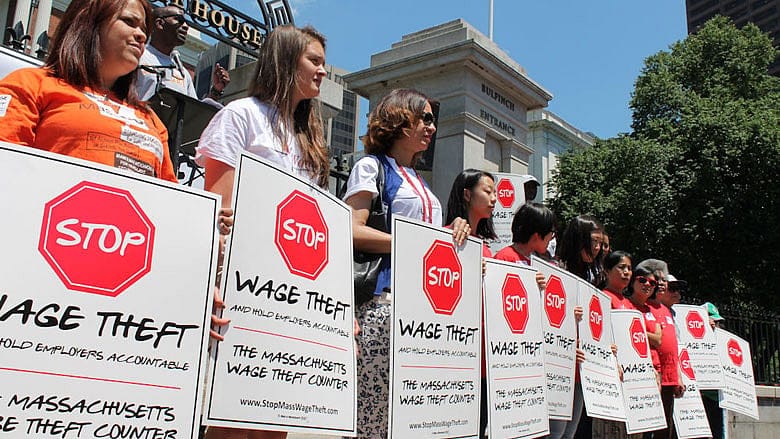Wage theft bill backed by Bump, Healey

STATE HOUSE — As workers gathered outside the State House Thursday to describe personal experiences with wage theft, the state auditor and staff from the attorney general's office joined them to show support for legislation backers say would step up employer accountability and protect worker rights.
A bill before the Senate Ways and Means (S 2207) would authorize stop work orders at businesses that violate wage laws, with worker wages guaranteed for the first ten days of lost work due to the order. It would also give the attorney general power to file civil actions for injunctive relief on behalf of workers.

